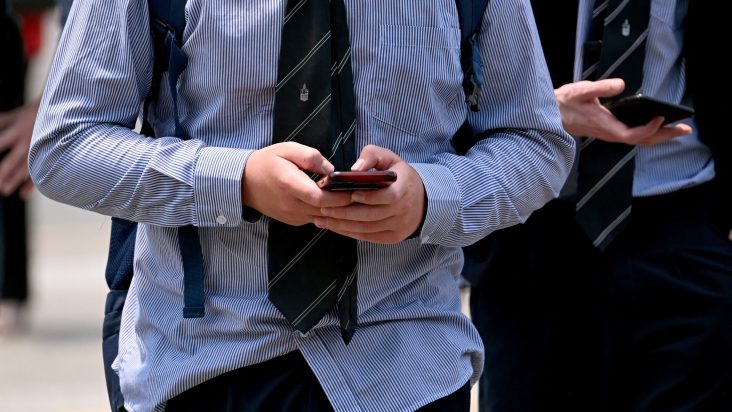One of the most extensive policies in the world to protect children from potential risks on the internet is Australia’s blanket ban on social media for kids under the age of sixteen. However, there were still a lot of unanswered questions, such what platforms would be covered and how it would be implemented.
With bipartisan support, the law passed the Senate on Thursday after easily passing the lower house of Parliament on Wednesday. According to Prime Minister Anthony Albanese, it places Australia at the forefront of initiatives to shield kids’ mental health and wellbeing from the negative impacts of social media, like cyberbullying and hate.
According to him, the legislation requires social media companies to take “reasonable steps” to keep users under the age of sixteen from creating accounts. For “systemic” failures to enforce age limits, corporations might face fines of up to 49.5 million Australian dollars, or over $32 million.
If a minor violates the rules, neither they nor their parents will be punished. Mr. Albanese added that it doesn’t matter if kids figure out how to get around the limitations.
In a statement last month, he added, “We’re sending a message to social media companies to clean up their act, but we know some kids will find workarounds.”
Similar to laws governing alcohol and tobacco in many nations, the new law will establish a new class of “age-restricted social media platforms” that are only available to people who are 16 years of age or older. However, it’s unclear how that digital carding will take place.
The conservative opposition claimed that the regulation was included in response to their worries regarding privacy rights because it states that users would not be required to present government identity as part of the verification procedure.
Furthermore, it’s unclear precisely which platforms will be prohibited. According to the prime minister, YouTube and messaging apps like WhatsApp are anticipated to be excluded, while Snapchat, TikTok, Instagram, and X will be included.
A legislation mandating parental approval for social media users under the age of 15 was passed in France last year, and the country has been advocating for similar policies throughout the European Union. This year, Florida banned users under the age of 14 and required parental approval for those who were 14 or 15 years old. However, the rule may be challenged on constitutional grounds.
Editors’ Selections
What Gives Names to New Streets?
Cher: An Illustrated Dictionary
Calling Donald Trump a liar: Am I Hypocritical?
17-year-old Leo Puglisi, the owner of the news website 6 News, which employs primarily teenagers, expressed his complete faith that his 14-year-old brother will find a way to get over any restrictions.
According to him, social media is an essential component of modern life. He acknowledged that it can be harmful, but he and his peers use it to connect with groups of individuals who share their interests, he added.
He claimed that a complete prohibition would not significantly lessen the risks associated with the sites.
There would be no removal of any dangerous content. He remarked, “It just throws you into the deep end at 16 and kicks the can down the road.” “On paper, it might sound good, but in practice, it’s not feasible.”

